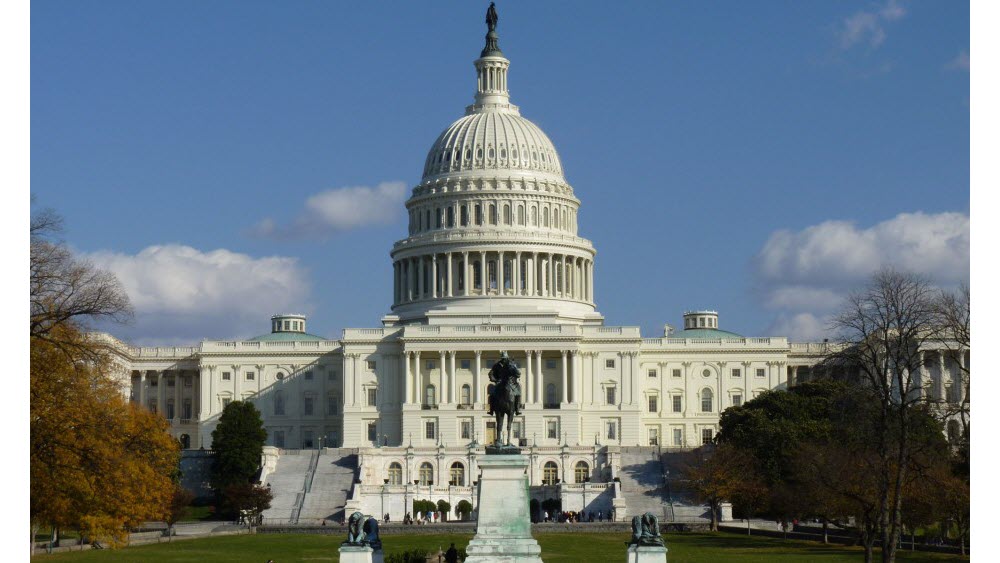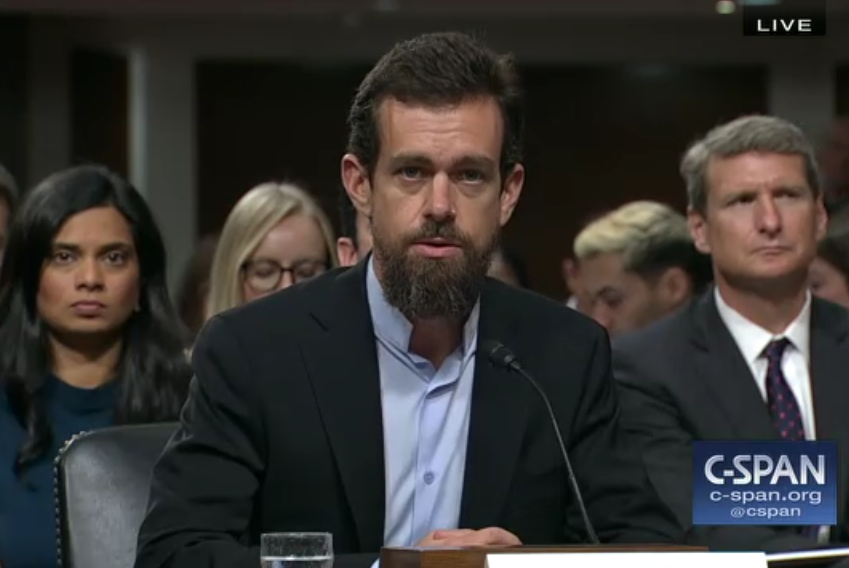Twitter's Dorsey to Hill: We Don't Base Decisions on Political Ideology

The smarter way to stay on top of the multichannel video marketplace. Sign up below.
You are now subscribed
Your newsletter sign-up was successful

Twitter CEO Jack Dorsey says the social media site does not use political ideology in its decision making, period.
That came in testimony before the House Energy & Commerce Committee, where he was a lone witness for a hearing entitled "Twitter: Transparency and Accountability."
Committee Republicans, who called the hearing, have expressed concerns that Twitter had censored conservative viewpoints, including barring a campaign video from House E&C Communications Subcommittee chair Marsha Blackburn (R-Tenn), calling it "inflammatory." That decision was ultimately reversed.
The Republican majority, in its hearing memo, also pointed out that as recently as last month, Twitter had suspended the account-Twitter said it was a mistake--of an activist who had parodied a New York Times editorial board member.
"Let me be clear about one important and foundational fact: Twitter does not use political ideology to make any decisions, whether related to ranking content on our service or how we enforce our rules," said Dorsey in his prepared testimony. "We believe strongly in being impartial, and we strive to enforce our rules impartially. We do not shadow ban anyone based on political ideology. In fact, from a simple business perspective and to serve the public conversation, Twitter is incentivized to keep all voices on the platform."
One of the things the committee is looking at is Sec. 230 of the Electronic Communications Privacy Act, which protects social media sites from liability over its users posts, and whether that should still apply in an age where sex and drug trafficking, election meddling, terrorism and more can be abetted by the velocity and accessibility (Doresy's description of Twitter in another context) of communications.
Earlier in the day, Dorsey had testified before the Senate Intelligence Committee.
The smarter way to stay on top of the multichannel video marketplace. Sign up below.
House Energy & Commerce Committee chair Greg Walden (R-Ore.) began the hearing by saying that the list of superlatives that could be used about the service "certainly exceeds 280 characters." But he also pointed to Twitter appearing to take actions to minimize certain viewpoint. Twitter has said the reality of that appearance could be traced to automated algorithms meant to maintain civility.
Walden conceded people make mistakes, but the key was how the company managed those mistakes.
Rep. Frank Pallone (D-N.J.) said he feared the hearing was to drum up campaign contributions by riding on the coattails of President Donald Trump's attacks on Twitter and other social media sites as censors of conservative speech.
But he conceded Twitter had a darker side, including being used for bullying and to spread disinformation and sew division. He quoted Dorsey as saying that truth will ultimately come out, but Pallone says he is not convinced.
He pointed out that President Trump tweets insults and attacks to help rally his base and raise money, "fabricating a problem that does not exist."
But despite that, Pallone said Twitter's policies appear to be chasing the latest headline, and signaled that needed to change.
Contributing editor John Eggerton has been an editor and/or writer on media regulation, legislation and policy for over four decades, including covering the FCC, FTC, Congress, the major media trade associations, and the federal courts. In addition to Multichannel News and Broadcasting + Cable, his work has appeared in Radio World, TV Technology, TV Fax, This Week in Consumer Electronics, Variety and the Encyclopedia Britannica.

